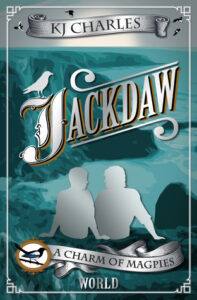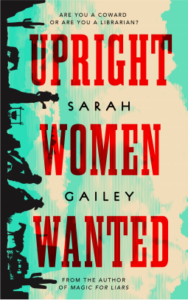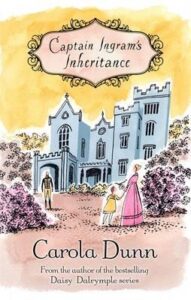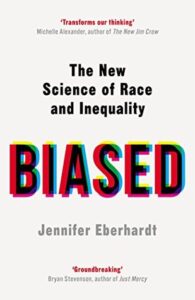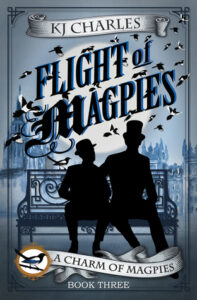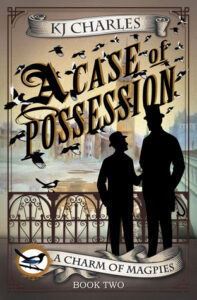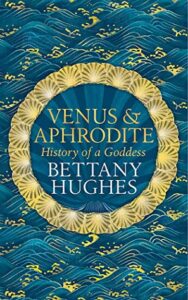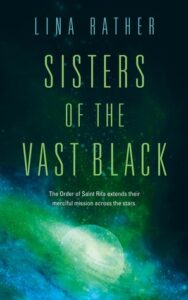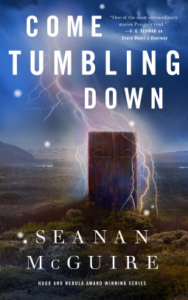 Come Tumbling Down, Seanan McGuire
Come Tumbling Down, Seanan McGuire
Received to review via Netgalley
Come Tumbling Down is the latest installment in the Wayward Children series, and really does not make sense as a starting point. We’re thrown into it as a girl nobody knows comes through Jack and Jill’s door, carrying the unconscious body of… Jill? And naturally there’s a whole new quest, despite all the rules.
I’ll admit to racing through this and definitely not lingering on anything. Jack is too close to home, with her serious OCD; I remember exactly what it’s like to worry that every inch of the skin of the body you’re in could be making you die any minute now. I also don’t enjoy the bits where she’s actually losing her entire mind as a result of the intensity of her OCD. I think I’m too close to it to fairly judge whether Jack’s behaviour seems right, but it didn’t feel right to me, at least not towards the end.
(Yes, I’m aware that Seanan McGuire is #ownvoices when it comes to OCD.)
I also wondered if it was intentional that everything the characters do actually enables Jack’s OCD, because I get the feeling it is intended to be read as supportive. And maybe it is, for someone with a very different view of OCD than I have, I’ll acknowledge that: I know that coming back from those compulsive behaviours is really hard, and some people don’t want to (and/or do not believe it is possible). But knowing how I came back from it, I can’t stand the way everyone enables it in this book, because I know that when I was in that position, people kindly caving to my compulsions made them worse.
For me, it really isn’t the epitome of love to create a map of someone’s freckles to show them that none of them are cancerous and help them monitor it obsessively — I can see that it’s actively making that person sicker. It’s not a matter of “wear gloves and you’ll be fine”; the gloves do not help, there’ll just be another step after the gloves (refusing to touch anything at all, perhaps). I remember my loved ones being torn between reassuring me and knowing they shouldn’t; it’s not an easy thing to do. But in my experience, OCD isn’t some kind of lifelong thing you just have to live with. There is treatment, you can stop being afraid. It’s rough, but it can be done, and the longer you delay doing it and engage in the reassurance behaviour, the harder it is. So it was pretty fraught reading all these things the characters do for Jack which seem kind and (for a real person) would probably just push her further into paranoia. Maybe Seanan McGuire experiences it a different way, but from my own perspective and a clinical understanding of OCD, I just cannot enjoy this the way I suspect it is meant to be enjoyed.
Also, I just really want to see Kade get a story for himself. Not somebody else’s quest, not somebody else’s happy ending. He’s enabled almost every other character’s story so far, without being given the chance to grow and find his own place for himself.
Reading this, I did enjoy it a lot, but the more I think about it, the less I do. There’s all kinds of interesting stuff going on with the balance of Jack’s world and meta-fictional stuff about stories, but… for me, this one was overshadowed by Jack’s OCD. And yeah, that’s probably a very personal thing, but that’s allowed.
Edit: Some sections of this review have been changed to make it clearer that I understand that Seanan McGuire is #ownvoices and has a different outlook on it than me.
Rating: 2/5
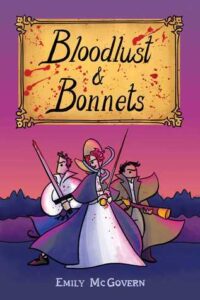 Bloodlust & Bonnets, Emily McGovern
Bloodlust & Bonnets, Emily McGovern

